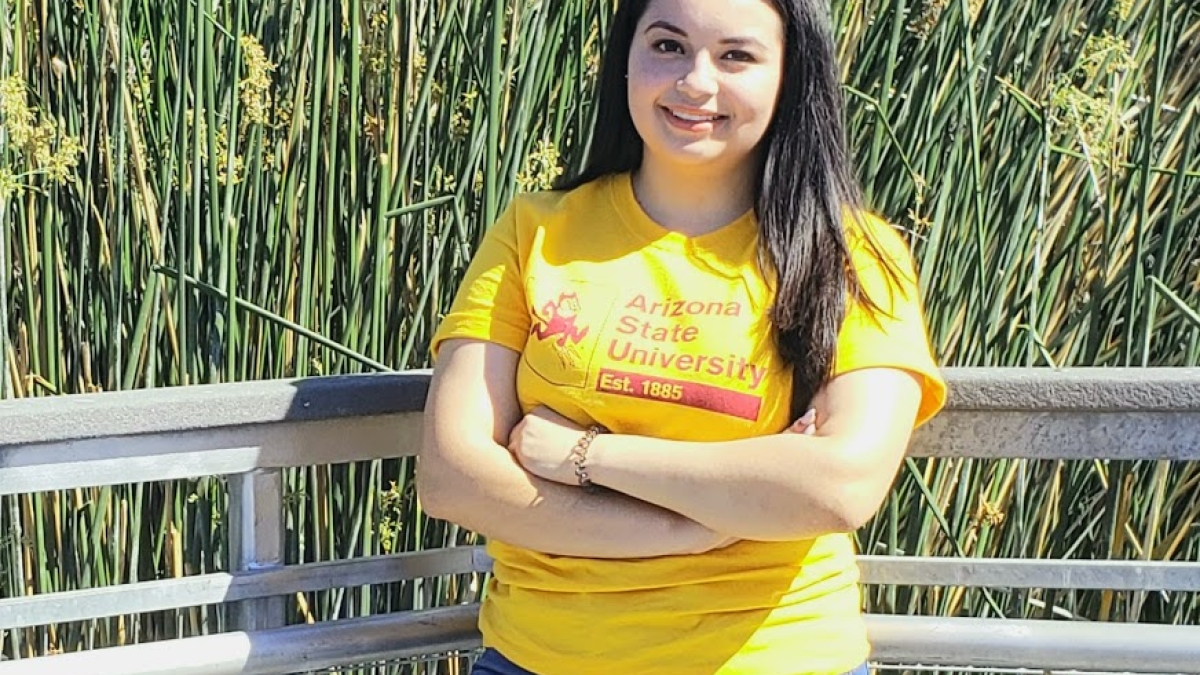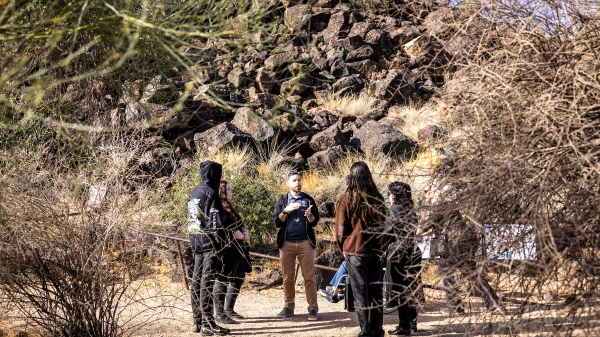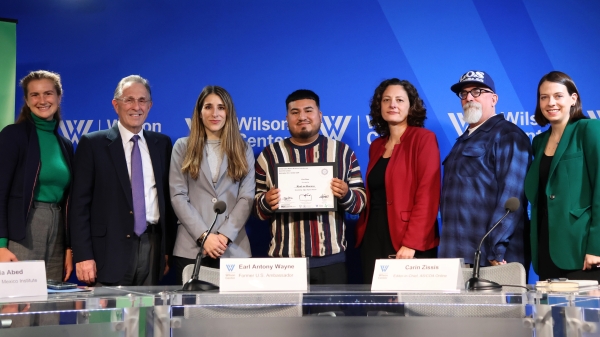ASU celebrates heritage speakers of Spanish

Junior Odalis Amaya Amaya decided to join the Spanish Heritage track to learn more about the language and culture she was raised with. Her parents migrated to the U.S. from Mexico and speak only Spanish, so Spanish is her primary language at home with them.
As part of National Hispanic Heritage Month, which is celebrated from Sept. 15 to Oct. 15 every year, the School of International Letters and Cultures at Arizona State University held a series of events during the first full week of October for its Spanish Heritage Language Awareness Week.
Heritage speakers of a language are those who grew up speaking the language with family, friends or other members of their community, as opposed to learning it for the first time in a formal educational setting.
The school's Spanish department includes a specific Spanish heritage track that helps “reconnect students to their cultural heritage and linguistic roots, as well as build their self-confidence and sense of identity,” said Sara Beaudrie, the director of ASU’s Spanish Heritage Program.
It is one of the largest such programs in the country and includes a significant online presence.
Junior Odalis Amaya Amaya decided to join the Spanish heritage track to learn more about the language and culture she was raised with. Her parents migrated to the U.S. from Mexico and speak only Spanish, so Spanish is her primary language at home with them. With her Spanish-speaking friends, meanwhile, she typically speaks English with some Spanish mixed in.
“Spanish has always been a part of my life since it was my first language,” Amaya Amaya said. “After I took my first Spanish class here, I knew I wanted to continue to take more Spanish classes and learn as much as I possibly could about my culture and where I come from. To me, it is important to develop my Spanish language skills to continue to have bonds and relationships with individuals who only speak Spanish and, more importantly, my family.”
Heritage courses differ from other language classes by focusing more on comfort and confidence in a language rather than rigid fluency. These courses strive to meet language speakers where they are to avoid repeating lessons they already know or assuming the level of knowledge they are entering the classroom with.
“I enjoy spending time in the classroom with other ASU students who come from the same background that I do because we all have that connection that allows for us to feel more comfortable with one another,” Amaya Amaya said.
Instructors of heritage classes are aware that heritage speakers may have complicated feelings toward the language they grew up around, such as frustration at not being at the level of competency they desire or disappointment at not being taught the language sooner.
Spanish Instructor Melissa Negrón, the coordinator of the Spanish Heritage Program, said the goal is to value students’ unique backgrounds and help them find their voices in Spanish-speaking communities, as well as the many other linguistic and cultural contexts they inhabit.
“Our students in the heritage program explore the complicated relationship of growing up in/with multiple cultures and sometimes feeling the need to pick one or the other,” Negrón said. “In the Spanish heritage classes, they are able to find a space where their multicultural identities and experiences are celebrated.”
Beaudrie, who is also an associate professor of Spanish linguistics and the associate director of the School of International Letters and Cultures, said research shows that Spanish heritage programs improve college retention for Latino students and help them build a community and find mentors.
Spanish heritage programs “teach them that their bilingual voices and ways of speaking are valid and should be celebrated,” Beaudrie said.
Amaya Amaya, a concurrent major in criminology and criminal justice and Spanish linguistics, sees her bilingualism as an asset for her future career, as well as her communication with friends and family.
“Being in the heritage program here at ASU made my love for Spanish grow even more because in the past I had not really embraced it as much as I do now,” she said. “I now understand the importance of continuing to be a part of this heritage and learning more about it every day.”
More Arts, humanities and education

Petroglyph preserve celebrates 30th anniversary with ancient, modern tales
The Deer Valley Petroglyph Preserve provides a beautiful walk through a pristine desert where chuckwalla lizards are as plentiful…

Kaleidoscope short film contest inspires powerful binational filmmaking in its second year
“We come to this country not to steal anybody’s jobs but to take advantage of the opportunities that the rest ignore. We’ve been…

ASU's Neal Lester reflects on life, death of poet Nikki Giovanni
When Neal Lester heard on Monday that poet and activist Nikki Giovanni had died, the news hit hard.Lester, the founding director…